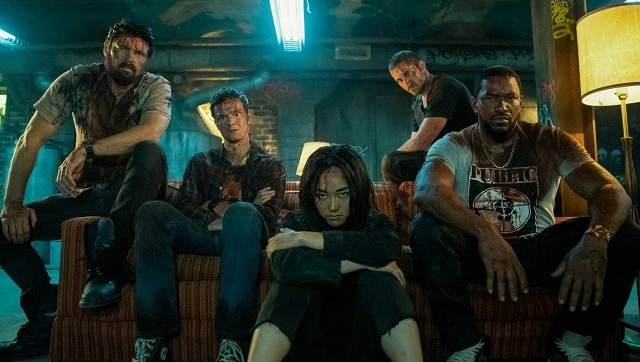A few days after Donald Trump was inaugurated as US president in 2016, Jordan Peele’s Get Out premiered at the Sundance Film Festival. The film would usher a new genre in itself, the exploration of America’s racial anxieties through the trope of horror, as Trump would go on to mime for four years, the same anxieties through the trope of democracy. Get Out was unsubtle to the extent the Trump tenure would turn out to be graceful. Not often does a newly birthed piece of art take its first step in the redecorated shadow of the monolith it thought it would to some extent demolish.
Perhaps Get Out was more of a warning than it was a historic correction. Warning that Trump’s entry into the White House was not just confirmation of America’s racial divide, but the start of a period that may instead be remembered as its deepest scar.
We can talk of Trump’s eventual exit from the White House in the past tense, but in a way, he will continue to linger through the divisions he has sowed over his reign. These divisions manifested in the way Trump looked at minorities and migrants, and used state power to suppress whatever agency they could hold on to. [caption id=“attachment_9216691” align=“alignnone” width=“640”]  Still from Get Out[/caption] Kathryn Bigelow’s Detroit (2017) was a punch of a film that looked at police brutality through the lens of an all-teeth realism. Steven Spielberg’s The Post underlined the importance of the press in a year when the likes of The Washington Post and The New York Times came under direct attack from the state. Racism, naturally, has been a key focus of Hollywood while Trump has been in power. Spike Lee returned after a brief hiatus with the darkly comic tale of a black undercover police officer who manages to infiltrate a chapter of the Ku Klux Klan in BlacKkKlansman (2018). Racism, under Trump, has not been limited to the colour of skin but also extended itself to poke ethical origins. Trump’s consistent attacks on American’s Latino and the Mexican people was upstaged by multiple Oscar wins by two Mexican directors (Guillermo Del Toro and Alfonso Cuaron), who essentially made films about love (The Shape of Water) and identity (Roma). Sandwiched between this Mexican stand-off of craft and storytelling was the stereotype-shattering Moonlight, the politically reaffirming Green Book, and the superhero blockbuster Black Panther. All these films centred minorities or became the toast of their accomplishment in a land where they were being hounded by the state. The icing on the cake may have been an immigrant Korean director (Bong Joon Ho) sweeping everything before him with a startling film about class inequalities ( _Parasite_ ). [caption id=“attachment_9216701” align=“alignnone” width=“640”]  Still from Parasite[/caption] When it comes to mirroring everyday political intrigue and chaos, television shows have an edge that premeditated cinema just cannot match. Veep continued to mock the self-seriousness of politics even when politics itself had become bafflingly banal and pedestrian. The on-the-nose criticism of the Trump administration in The Good Fight was perhaps unmatched but it was at least, in spirit, replicated by most late-night hosts, with varying degrees of success. Honestly, Trump’s reign proved too farcical to ignore, and yet too redundant in its stupidity at times, to build serious work upon. Racism became a leading motif in streaming as well, and it says something about the seriousness of the moment when the daft world of superheroes has to step out of its white comfort zone. Damon Lindelof’s beguiling take on _Watchmen_ is perhaps one of the greatest political take on comic book heroes, somehow adding to the political origins of the comic. Amazon Prime Video’s _ The Boys _ went loud by imagining superman as a sycophantic white supremacist. [caption id=“attachment_8786451” align=“alignnone” width=“640”]  Still from The Boys[/caption] The chaos of the Trump presidency requires little creative imagination for it to be packaged more sensationally than it already was. The device of documentary filmmaking was ripe to peek this basket of cherries that simply would not let up on the harvest. Michael Moore’s Farenheit 11/9 was a chilling take on the system-enabled election of a bigot into the biggest office in the world, and how America had reached where it had. HBO’s Agents of Chaos tried to dive into the alleged Russian hand in Trump’s election to office with hair-raising authenticity, and uncovers the fragile political belly of a country that likes to think of it as anything but. In the shorter format, John Oliver’s Last Week Tonight upped its game in banishing myths fabricated by the Trump administration, through foul-mouthed, hilarious takedowns. It kind of points to the contradiction that America has become, simultaneously a country free and at war with itself. Cinema under Trump, it is safe to say, has been indicative of the chaos and division he has imported to the country. Part of the reason why America seemingly holds it together is because its institutional values continue to supersede the individual. Cinema as institution allows stalwarts like Meryl Streep and Robert De Niro to take the stage and openly criticise their president. Freedom is a notional idea, when all one has is dialogue and discourse. But as cinema has shown in Trump’s years, sometimes the greatest contribution you can make to a conflict is to, with honesty, record it. All images from Twitter.


)
)
)
)
)
)
)
)
)



